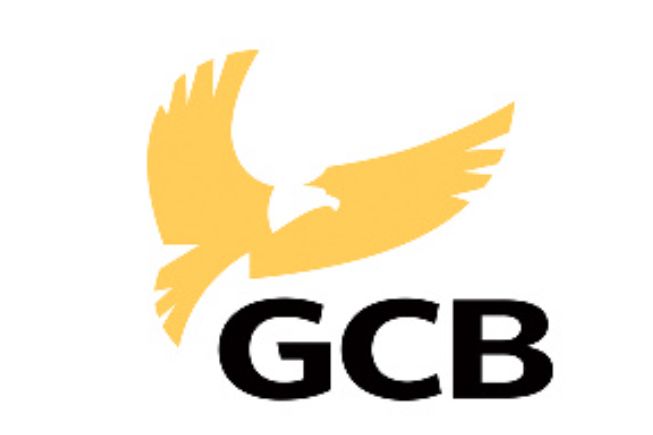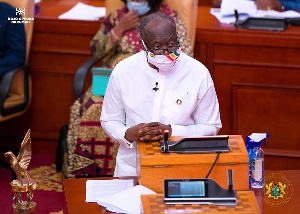AG files injunction against Cassius Mining’s US$300 million international arbitration

Godfred Dame Yeboah is also seeking to stop the Company from taking any step whatsoever in international arbitration proceedings against Ghana until the arbitration instituted by Cassius Mining Limited against Ghana at the Ghana Arbitration Centre in 2018 has been heard and determined.
It would be recalled that years ago, Cassius Mining, an Australian-owned mining company, instituted international arbitration against Ghana at the Permanent Court of Arbitration claiming about US$300 Million, which was suspended following objections by the Attorney-General.
Notwithstanding this, the Australian-owned company made attempts at resorting to other international arbitration forum to pursue its quest of instituting international arbitration against Ghana.
Backing his application with many voluminous documents, the AG stated that, on October 12, 2016, Cassius Mining Limited applied for a prospecting licence from the Government covering 13.791 km2 of the Gbane/Datoko area in Talensi, Upper East Region of Ghana.
This was granted by the Government on December 28, 2016, for a term of two years expiring in December 2018.
The A-G contended that clause 21 of the Prospecting Licence Agreement specifically required any question or dispute that arose regarding the rights, powers, duties, and liabilities of the parties thereto, to be referred to arbitration in accordance with the Alternative Dispute Resolution Act, 2010 (Act 798) of Ghana.
Mr Joseph Kwadwo Konadu, Counsel for the Company, told the Court presided over by Justice Mrs Akua Sarpomaa Amoah that they had filed an affidavit in opposition and statement of case on Wednesday July 19, 2023, together with a preliminary objection.
The Attorney-General told the Court that his outfit was not served but it had seen a copy of the affidavit in opposition and statement of case.
Mr Godfred Yeboah Dame said: “I have perused the process and essentially canvasses point of law in opposition to the application, respectfully I do not think I will be handicapped at all in continuing with the trial.”
Konadu: As is clearly indicated on the motion paper, the legal basis and foundation of this application is section 39:3 of alternative dispute resolution Act 798.
Respectfully, that section provides for the powers of this court to support arbitration proceedings and in the spirit of Act 798, which is fashioned under the UNCITRAL model law, therefore, the court’s intervention under circumstances such as these is conditioned upon certain things occurring first.
Under section 39:3 where the application is not one of urgency, the court only has jurisdiction to proceed in an application under section 39 when first the application is on notice to another party in the application proceedings as well as the arbitration tribunal and most importantly, either the permission of the tribunal has been obtained by the applicant or the parties have agreed in writing.
Under section 39:2, this court can proceed without the conditions in 39:3 being met when two precautions exist.
The first is that it should be a case of urgency but secondly, the application should be for the preservation of evidence or assets.
The current application is not for the preservation of evidence or assets. Indeed, it is clear from paragraph 36 of the affidavit in support that this is an application for an anti-arbitration injunction so section 39:2 cannot apply.
So, we go back to section 39:3. Obviously, the parties have not agreed in writing to this application to move.
The written agreement under 39:3 is not present in this case.
Secondly, the permission of the tribunal has also not been sought. If any of the two conditions were presented, then obviously as a court of record, they would have had to be exhibited, but in this case, that has not been done.
Respectfully, mere notice to the tribunal is not permission. Under section 39:3, an additional requirement to first seek permission is required.
We did not find any Ghanaian authority on the subject, but the position does not lack authority in the Common Law world.
Our provision is like Section 44 of the English arbitration Act.
AG: The preliminary objection is baseless and seeks to distort the nature of the application before the court. The application before you is very specific and invokes the court’s power under section 39:(1)(e) only, and not any other provision of Act 798.
Respectfully, the application does not invoke 39:2 and 3, which actually deal with different matters. 39:2 is very clear and that is the provision that deals with urgency. It is only when an application seeks to invoke the court’s power for the purpose of preserving assets and evidence under section 39:2 of act 798, that the demonstration of urgency is required.
Further, in the case of an interim injunction under section 39:1e, there is no requirement for the demonstration of any urgency.
Therefore, the attempt by my learned friend to extend the application to section 39:2 and 39:3 to an application brought under 39:1e is completely misconceived and unwarranted.
This is more so when the court takes a broad look at section 39:1. The court would notice that section 39:1 deals with a variety of subject matters so, an application for the taking of evidence of witnesses, preservation of evidence, an application for inspection, photographing among others are all included in section 39:1.
But the court would notice that section 39:1 39:2 deals with two of the subject matters in section 39:1 and not all the wide range of matters mentioned in section 39:1.
This reinforces my contention that section 39:1 and 39:2 are only specific to the preservation of evidence and assets.
Assuming there is a requirement for urgency, I will respectfully submit that the case before you clearly shows the need for urgency for the court to act to impose an interim injunction to restrain the respondents from embarking on its abusive process of forum shopping in other jurisdictions, which we have raised in the application before you.
Indeed Section 39:1 beats the court with jurisdiction to supervise arbitral proceedings and check abuse on the right of a party to an arbitration agreement.
Sanctioning the conduct of the respondents to proceed on arbitration under rules alien to the mining agreement between the parties would have the consequential effect of subjecting the parties to the jurisdiction of foreign courts and not this honourable court and that must be jettisoned by this court and protect our sovereignty as a nation.
The case has been adjourned to July 31 for ruling.
Source: GNA





